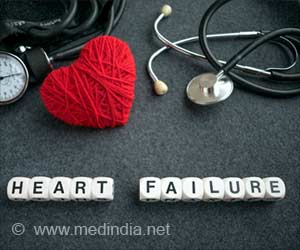Women thriving on a blood pressure lowering diet, namely Dietary Approaches to Stop Hypertension (DASH) diet, or a similar diet, are less prone coronary heart disease and stroke, says a new study.
Women thriving on a blood pressure lowering diet, namely Dietary Approaches to Stop Hypertension (DASH) diet, or a similar diet, are less prone coronary heart disease and stroke, says a new study.
The DASH diet is one that is low in animal protein, moderate in low-fat dairy products and high in plant proteins, fruits and vegetables and has been known to reduce both systolic (top number) and diastolic (bottom number) blood pressure in individuals with high or normal blood pressure.Besides, the diet has also been shown to reduce low-density lipoprotein ("bad") cholesterol and is recommended in national dietary guidelines as an example of a healthy eating pattern.
Headed by Teresa T. Fung, Sc.D., of Simmons College, Boston, the researchers monitored 88,517 female nurses age 34 to 59 in the Nurses’ Health Study who did not have cardiovascular disease or diabetes in 1980. They monitored the diet patterns of these women since 1980 to 2004, calculated a DASH score for each woman based on eight food and nutrient components.
It was found that their scores increased when they ate more fruits, vegetables, whole grains, nuts and legumes and stayed close to the recommended amounts of low-fat dairy. Scores decreased with increased consumption of red and processed meats, sweetened beverages and sodium.
After 24 years of follow up study, it was observed that higher DASH scores were linked to a lower risk for heart disease and stroke.
Also, in a subgroup of women who provided blood samples, higher DASH scores were also linked with lower levels of C-reactive protein and interleukin 6. These compounds are markers of inflammation, which has been associated with heart disease risk.
Advertisement
Source-ANI
SRM/K











